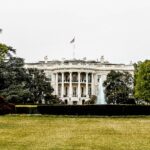Leadership Advice: Never Stop Reading
Don’t stop reading. 
And read things that are meaningful and challenging every once in a while. I like Harry Potter and the Hunger Games series as much as the next guy—and there’s nothing wrong with light reading. But make sure you also read about the world around you—about history and politics and economics and current events.
Most people think that their education culminated in a college diploma. But to a large extent, the traditional four-year college experience is designed to insulate you from many of the realities of life.
It’s only once you graduate that you can really begin to engage with—and learn about—the world.
Reading will invariably enhance this experience.
As Winston Churchill tells it in his memoirs, “It was not until this winter of 1896, when I had almost completed my twenty-second year, that the desire for learning came upon me. I began to feel myself wanting in even the vaguest knowledge about many large spheres of thought.”
Stationed in Bangalore, India with the British Army at the time, he recalled feeling “a dozen … mental needs” beginning “to press insistently upon me.”
“Of tactics I had a grip,” he wrote; “on politics I had a view, but a concise compendious outline of Ethics [or history or philosophy or economics] was a novelty not to be locally obtained.”
This is the man who eventually would save Western Civilization from Nazism, and it wasn’t until the age of 22—once he was out of school—that he began to take his education seriously.
So he resolved to read—and satisfy his “empty, hungry mind.” Once a month his mother would send him a package of books, which he diligently read for a few hours every day.
His experience with these books—what he called his “Education at Bangalore”—had a lasting impact on the trajectory of his life. It affected his perspective on everything from history to religion. It changed his understanding of the world.
Yet as inspiring as Churchill’s story may be, it doesn’t give us the most practical guidance. It doesn’t tell you where to begin your reading.
Allow me to make a recommendation: your reading list should include—if not start with—the classics from the canon of American political thought. Conservatism is a modern political movement, but we owe much of our strength and vitality to the principles of the American Founding.
This inheritance has been passed from Washington, Madison, Hamilton, and Jefferson to Abraham Lincoln—the first Republican president—and on to the great modern conservatives, like Calvin Coolidge, Barry Goldwater, William F. Buckley, and Ronald Reagan.
So in many ways it is our duty as conservatives to read and study the Declaration of Independence and the Constitution, the Federalist papers; the great speeches of Lincoln, Coolidge, and Reagan; and even the writings of the most astute foreign admirers of the American system, like Alexis de Tocqueville and Friedrich Hayek.
In these works you’ll find the articulation and the defense of the principles that still guide the conservative movement today.
Mike Lee represents Utah in the United States Senate. This is an excerpt of a speech delivered at an America’s Future Leadership Dinner on June 25, 2014 in Washington, D.C. To read more about Mike Lee, please visit his website.




